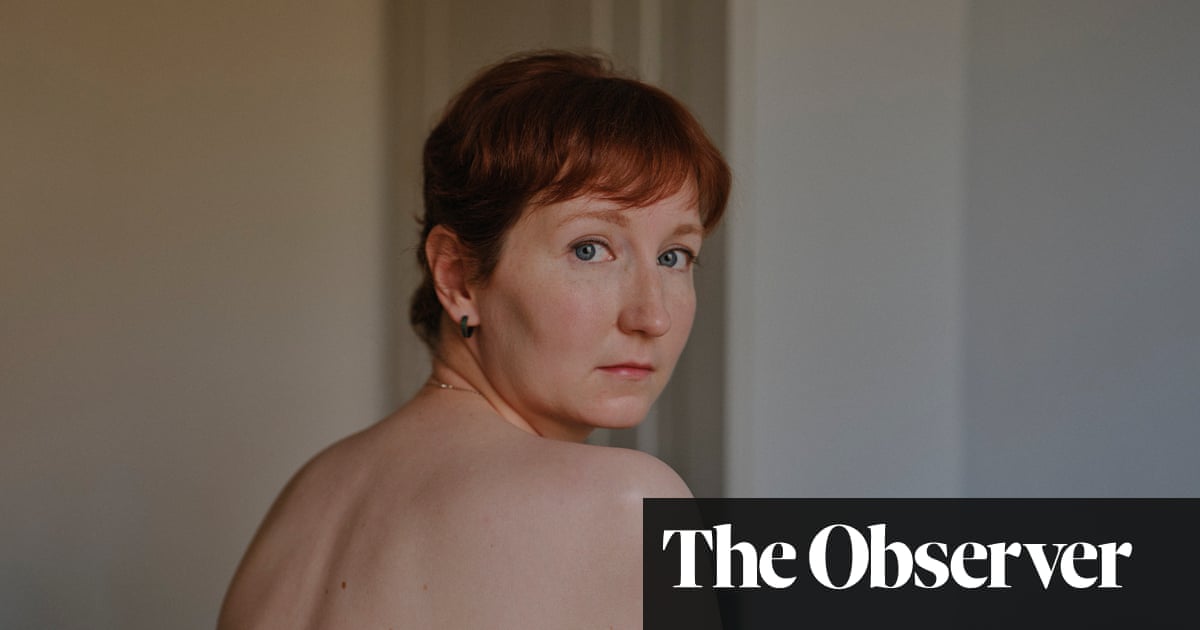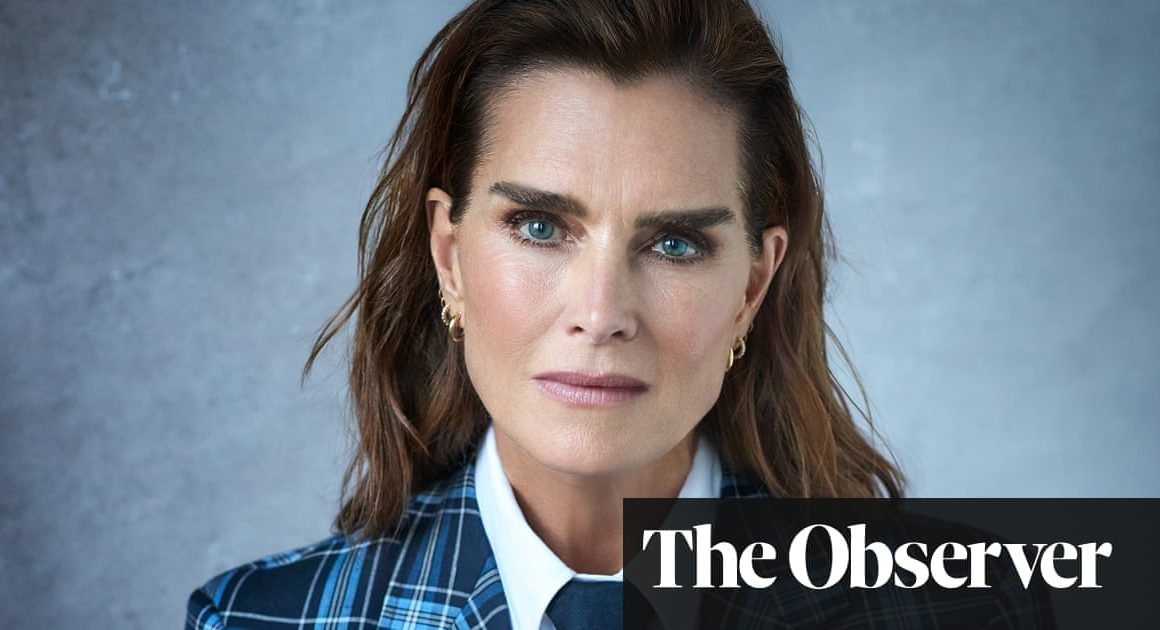Emma, tell me who you are.” It’s the first day of a meditation retreat in a remote corner of the Yorkshire Moors, completely silent apart from scheduled “communication exercises”. I take a deep breath.
“I’m 32. I’m from Liverpool, I live in London with my partner, John.” A pause. There’s no avoiding it. “A year ago today I was diagnosed with stage-three breast cancer.”
The previous 12 months win “worst year of my life” by some margin: a life-upending diagnosis, five months of chemo, a mastectomy, radiotherapy and then fierce ongoing treatments to keep the cancer away – I’m living in an induced menopause and in the last month alone I’ve dropped half a stone from meds-induced diarrhoea. I booked on to the retreat without any expectation to “heal” – that seemed oversimplified and too much to expect. I was simply curious to go to a place of stillness after my year of chaos, to make some sense of what had happened to me. This seemed a good place to start.
My diagnosis happened three times.
My left nipple hadn’t been going erect the way it used to. I responsibly went to the hospital to get probably nothing checked out. I was whisked straight into the biopsy room, suddenly having samples taken of six “highly suspicious” lumps, laughing “fuck” over and over. For the next two weeks I endured countless well-meaning people telling me to stay optimistic, but from the radiographers’ grave eyes and coded words, I already knew.
On the formal diagnosis day I learned in one breath that I was in for eight rounds of chemo that would claim my hair and my fertility, and that a mastectomy of my left breast was an inevitability. That, at stage three, it would “hopefully” be curable, but that more scans would be needed to check for further spread.
On the third appointment I was preparing to be told I had months to live. My sister tied my shoelaces to get me to the hospital, John held me in the car park as a thunderstorm crashed over our heads and I shook in blind terror. When the consultant confirmed there was, in fact, no further spread, I shrieked for joy – before the reality of what lay ahead sank back in.
I arrive at the retreat in the early evening, driving up a steep muddy track to the farmhouse, watching my phone signal dwindle to nothing. The retreat leader, David, a bumbly older man, gathers the 15 participants together and I share my cancer experience quickly, half mortified, half weirdly proud. Then the silence begins.
“Morning boards” clap us awake at 5am; everyone is outside in the courtyard for gentle exercises by 5.15am, a misty half-moon watching us from the other side of the valley. The first morning of meditation is frustrating. David advises us to concentrate on the breath, but a nearby participant is breathing distractingly loudly. After just a few minutes, one woman starts crying. How has she already gone so deep while I’m just thinking about my dead leg?
I was slightly thrilled by the prospect of switching off my phone for five days. I expected to feel blissfully cleansed. As it turned out, turning off my phone allowed my mind to come flooding in. I quickly realise that all the “stimulation” I seek from screens is, in fact, a numbing agent, and I feel more myself than ever, with all my minor preoccupations and thought patterns laid bare.
David suggests we observe these thoughts and put them into “sheep pens” – categories for the places our minds go. I’m pretty dismayed by mine. First, analysing interactions I’ve just had with people to theorise whether they think I’m cool or hot or interesting. Second, planning future interactions to try to make sure I’m perceived as cool or hot or interesting. Even on a silent retreat.
While we’ve all taken a vow of silence, this place does not feel quiet. Without words, it feels like each person’s individual energy reverberates around the space. I already know these people better than if we’d met at a party. And there are inevitable interactions, too, shared with warm eyes – passing bread around the table, scuffling past one another in the dorm with toothbrushes.
Still, it’s a lot more peaceful than the last dorm I shared: the Acute Medical Unit of Arrowe Park Hospital. I was admitted with an infection and thrown into a cramped ward of six miscellaneous patients, three of whom had dementia. All night they wept, moaned, yelled – and the nurses yelled right back.
I tried to dissociate: focusing on a WhatsApp message from John and friends holding a “wish you were here” sign from the Andalusian wedding I should have been at that weekend. After six unsuccessful attempts to cannulate me for emergency antibiotics, the clock ticking past midnight, ward staff had called in “the Vampire” – the best needler in the hospital. I’d cried as I was punctured yet again, watching a confused patient loom towards my bed before being wrestled back into her own bay. A few weeks earlier everything had been normal; who decided I belonged here?
We gather again in the meditation hall. Now that our minds are more settled, it’s time to drop in “the question”, that being “Who am I?” We’re assured that we’ll reach a sense of resolution, but that will involve looking at all aspects of ourselves with complete honesty. Two things come as a relief. First, the invitation to meditate on something. Second, the welcoming of my biographical self. I’m aware of the Buddhist philosophy of the self: we are just a cloud of sensation and all that. Here, the notion of my individual self is brought back to the fore. We’re invited to explore our histories and behaviours rather than dismiss them. We’re actively cautioned against creating a Zen “cave” where we don’t have to engage with our troubles and darker sides.
For the rest of the retreat, we will alternate between meditation and “partner communications”, focused on our question. We are to keep a neutral expression while receiving what our partner says. No nods, no smiles, no comforting. Just listen. I cry for a lot of my first five minutes, struggling to say much. My answers to “Tell me who you are?” feel obsolete. The person they describe was effectively destroyed the day I was diagnosed. But the cancer statements don’t sit right either. When the bell rings I dry my eyes, and pose the question back to my partner. Listening to them is deeply moving; I will them onwards with my whole being.
At my first one-to-one with David, I concede I’m struggling to incorporate cancer into the “Who am I?” question: cancer feels like “somebody else’s jumper”. It fits me, looks good even. But, ultimately, I just cannot believe it’s mine.
My diarrhoea has inexplicably gone away within a day of meditating; I wonder whether some fast-track mind-body healing is already under way. As we move into day two, the insights start coming fast. My cancer grief is elusive, because it’s incomplete. Yes, I could have died, but I didn’t. Yes, chemo has probably made me infertile, but they froze my eggs first. Yes, I lost my hair, but now it’s growing back. Of course, I would choose all these scenarios over the alternative, but it means I keep missing the top step when it comes to fully grieving what’s happened. There’s always a pesky silver lining.
On an afternoon ramble through the moorland, I come face to face with a herd of deer, moving quietly across my path. I watch until they camouflage back into the grasslands on the other side of the valley. Back at the farmhouse, I eat cake in the sunshine. Everything feels in balance: the sad with the joyful, the inner with the outer, the playful with the serious.
So far, I’ve been enjoying the absence of therapy speak: the fact that there is no forced creation of a “safe space”, no trigger warnings. The sense that we’re adults, that we can be trusted. But as we roll into the next meditation, my mind starts to race. There’s a lot of trauma here. What if it comes out the wrong way? A loud moan bursts through the silence, breaking into shuddering sobs. I jump: another attender is in a lot of distress in his meditation. Minutes pass as he writhes and angrily wails on the floor. It hits me how exposed I am to these 14 strangers as they reach into their darkest selves. I start panicking. He seems on the brink of losing control. Suddenly, the whole retreat seems inhumane, and unsafe. Heart racing,
I rush to the dorm and switch on my phone. Zero signal. I put on my coat and boots and head out into the rain and gathering darkness, up the path on to the moor. A blessed signal bar appears. I call John. I can’t stop my voice trembling as I stutter through what’s happening. I’m shaking with adrenaline, shivering with cold in the wind and the gloom.
Back at dinner, everyone seems suddenly ghoulish. Reading out prayers in a low zombie monotone, eating the food silently and solemn-faced. I find David after dinner and tearfully relay the danger I feel of pushing strangers into such intense states without proper support, the fright of the man’s meltdown. I’m wondering whether to leave. He tells me the safeguarding that’s happening and suggests I go easy on myself. He advises me to skip sessions if I want and gives me the wifi password to use if need for the rest of the week. And, of course, I can leave whenever I want.
Though still a little trepidatious, I start to feel safe again. There are niggling feelings that I’ve somehow “failed” at the retreat by having the rules eased like this. If my phone doesn’t stay off, if I don’t attend every session, can I claim to have really done it? But bigger than those feelings is the sense that over the past year I have truly been punished enough. Finally, some of what cancer is comes fully into focus.
Cancer is that visceral feeling I had up on the moor – unsafe and exposed – happening again and again and again, laid bare in huge machines, watching chemo trickle into my veins, watching the thermometer confirm another fever and another A&E trip. So I do go easier on myself. I still get up at 5am, waking from ever more vivid dreams. But I sit out the late morning sessions in favour of roaming the moors. I go straight to bed after dinner.
The following next day the man has another mid-meditation outburst, screaming “FUCK” across the silent room. It sets my entire body shaking and it won’t abate. I think about my therapy sessions back home, how often I’ve tried but failed to access anger. Observing my body in response to the stranger’s anger from across the room, I realise I’ve been missing the first step – acknowledging how overwhelming other people’s anger is for me. This physical reaction is a clue I’ve overlooked. And I see how the retreat is working: it doesn’t protect me from discomfort and fear, but it allows me, instead, to look at these feelings.
At the start of the retreat I felt hot shame about my appearance: bags under my eyes, post-chemo boy hair, the awful knowledge of my mastectomy under my clothes.
In meditation I revisit the topsy-turvy world of breast surgery. “Between you and me, it might be worth getting yourself to McDonald’s.” Those were the consultant’s words – if I wanted my breast reconstruction to be made from my own stomach tissue, rather than a riskier silicone implant, it wouldn’t hurt to gain a few pounds. Cue a September filled with “yes’s” to the dessert menu. At the pre-op planning meeting, a room of plastic surgeons grabbed fistfuls of my belly fat, debating among themselves whether it would give a C-cup worth of material, and finally confirmed my gluttony had been worth it; my stomach was to become my breast.
In communication exercises, I have found myself opening up with truths I hold around my body and desire: I cope with my body, but I don’t celebrate it; I used to enjoy having sexual power, but now it hits a dead end as soon as I take off my clothes. I hate the scarred, lumpy, nipple-less thing I have to accept as my new breast – but confusingly, I do now have the tummy tuck of my dreams.
Saying these statements out loud to a stranger doesn’t immediately dispel them, but there’s a definite loosening that happens as they’re received. With each passing day, I have forgotten about my surface appearance because I’m having some of the most intimate moments of my life.
Afterwards, back in the real world, I find it easier to make eye contact and conversations are tending to go deeper. I’ve been enjoying the silence. My life is no longer soundtracked by endless podcasts. Instead, I’m lost in thought a lot of the time. Some days my cancer feels viscerally real and terrible; other days it’s somebody else’s jumper again, and I roll with that.
My diarrhoea comes back the second I have a strong coffee. So, there’s that mystery solved – no miracle spiritual cleansing needed, just an adjustment in my caffeine intake. Sometimes the answer is a lot simpler than you think.











